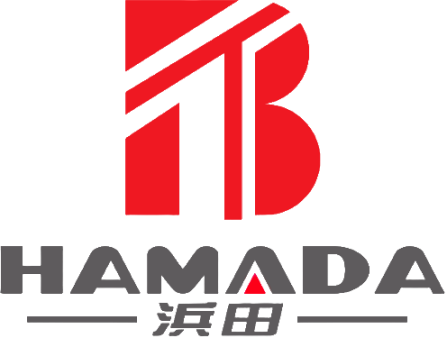What is the Efficiency of Harmonic Drive?
What is the Efficiency of Harmonic Drive
Harmonic Drive, a precision gearing technology widely used in robotics and aerospace, is renowned for its exceptional efficiency and performance. This innovative drive system leverages a unique design comprising a wave generator, a flexible cup, and a rigid circular spline. The core advantage of Harmonic Drive is its high torque-to-weight ratio, enabling compact and powerful gear transmissions.
Recent studies highlight that Harmonic Drives achieve efficiency rates exceeding 90%, making them a preferred choice in applications demanding both high precision and reliability. The system's low backlash and high repeatability contribute significantly to its overall efficiency, reducing energy losses and enhancing operational accuracy.
Industry experts emphasize that the Harmonic Drive's efficiency is a game-changer for sectors such as robotics, where precise movement and energy conservation are crucial. As technology advances, ongoing improvements promise to further enhance the efficiency of Harmonic Drives, solidifying their role as a key component in cutting-edge engineering solutions.
As the demand for more sophisticated and efficient mechanical systems grows, the Harmonic Drive continues to evolve. Researchers are exploring new materials and design modifications to further push the boundaries of its efficiency. These advancements aim to reduce friction and wear, enhancing the longevity and performance of the drive systems.
Additionally, the Harmonic Drive's ability to maintain high efficiency under varying loads and speeds makes it indispensable in applications ranging from space exploration to medical devices. Its compact size allows for integration into tight spaces without compromising on power or performance.
Looking ahead, the focus will be on refining manufacturing techniques to ensure even greater precision and reliability. With its already impressive efficiency metrics, the Harmonic Drive is poised to remain a cornerstone of high-performance engineering, driving innovation in multiple high-tech industries.
Moreover, the integration of advanced materials and precision engineering techniques is set to elevate the efficiency of Harmonic Drives further. Innovations such as improved lubricants and coatings can reduce friction and extend service life, while advancements in digital control systems enhance the drive’s responsiveness and accuracy.
The drive's adaptability is also being explored for emerging applications in autonomous vehicles and renewable energy systems. As these fields demand increasingly sophisticated and efficient mechanical components, the Harmonic Drive's unique advantages position it as a leading solution.
Overall, the continued development of Harmonic Drive technology promises not only to enhance efficiency but also to expand its potential applications, driving forward the frontiers of engineering and technology.
 English
English Español
Español Português
Português русский
русский français
français 日本語
日本語 Deutsch
Deutsch Tiếng Việt
Tiếng Việt Italiano
Italiano Nederlands
Nederlands ไทย
ไทย Polski
Polski 한국어
한국어 Svenska
Svenska magyar
magyar Malay
Malay বাংলা
বাংলা Dansk
Dansk Suomi
Suomi हिन्दी
हिन्दी Pilipino
Pilipino Türk
Türk Gaeilge
Gaeilge عربى
عربى Indonesia
Indonesia norsk
norsk اردو
اردو čeština
čeština Ελληνικά
Ελληνικά Українська
Українська Javanese
Javanese فارسی
فارسی தமிழ்
தமிழ் తెలుగు
తెలుగు नेपाली
नेपाली Burmese
Burmese български
български ລາວ
ລາວ Latine
Latine Қазақ
Қазақ Euskal
Euskal Azərbaycan
Azərbaycan slovenský
slovenský Македонски
Македонски Lietuvos
Lietuvos Eesti Keel
Eesti Keel Română
Română Slovenski
Slovenski मराठी
मराठी Српски
Српски
Innovative Applications of HarmonicDrive Actuators in Semiconductor Equipment
As semiconductor process technology evolves towards sub-5nm, equipment places higher demands on the accuracy, reliability, and space utilization of motion control systems. HarmonicDrive, with its integrated harmonic reduction technology and servo motor design, has become a core drive solution for key processes such as CMP (Chemical Mechanical Polishing), wafer transport, and photolithography equipment.
Read MoreDomestic Substitution Case Study: Technological Breakthroughs and Cost Advantages
Harmonic Drive Reducer modules, newly developed by Harmonic Drive, are specifically designed for humanoid robot finger joints. With a compact diameter of just 28mm, they achieve 0.1° repeatability while withstanding 15Nm of peak torque. Their patented flexible wheel material and optimized tooth profile ensure a lifespan exceeding 20,000 hours, meeting the high-frequency grasping demands of robots.
Read MoreCustomer Delegation Visits Company
Recently, a delegation of important clients was invited to visit DOBOT's headquarters and smart manufacturing exhibition hall. The delegation gained an in-depth understanding of the company's latest achievements in smart manufacturing, collaborative robots, educational robots, and automation solutions, and expressed high recognition of DOBOT's global market presence and innovative strength.
Read More